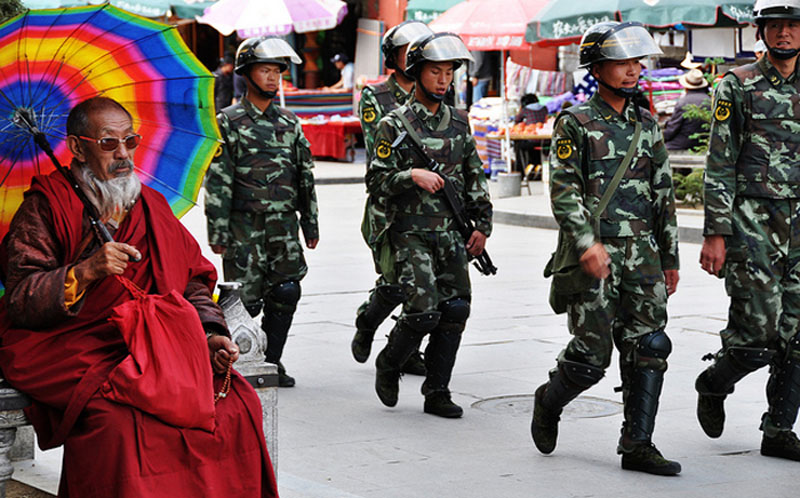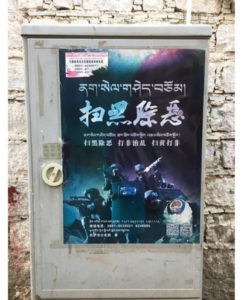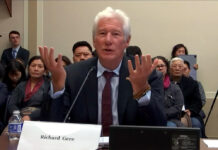
(TibetanReview.net, May16’20) – Authorities in Chinese ruled Tibet are using a national anti-crime campaign to crack down on peaceful expression by Tibetans and to criminally prosecuted activists defending Tibetan culture and environment as well as critics of official corruption and those suspected of being supporters of the Dalai Lama, said New York-based Human Right Watch in a new report May 14. It said Tibetan government employees involved in any religious practices were also being persecuted similarly.
China launched a nationwide “anti-gang crime” campaign in Jan 2018 to crackdown on drug dealing, gambling, and other gang crimes. However courts in Tibetan areas used “gang crime” charges to sentence at least 51 Tibetans to up to 9 years in prison for peacefully petitioning or protesting over issues related to religion, environmental protection, land rights, and official corruption, the group said in report titled China: Tibet Anti-Crime Campaign Silences Dissent.
“The anti-gang crime campaign has intensified the persecution of those deemed to be disloyal to Communist Party rule,” Sophie Richardson, the group’s China director, has said. She has noted that “China had long imprisoned people engaged in peaceful dissent in Tibet.

The anti-gang campaign is known in Chinese as saohei chu’e, an abbreviation for “The Sweep Away Gangs, Root Out Evil Special Struggle.” the TAR Public Security Bureau had in 2018 issued a directive which said that any individual or group “holding themselves out as so-called ‘spokespersons’ for the masses” on issues such as environmental protection or the promotion of Tibetan language, folk traditions, and culture were to be classed as a form of “gang crime,” the report noted.
The directive was also stated to note that actions that “undermine local-level general elections,” or that involve a group of individuals “stirring up trouble in land acquisition, leases, demolitions, engineering projects, and the like” were to be considered a form of “gang crime.”
The report cited Chinese state media as having reported recently that central government officials had ordered regional authorities to target Tibetan dissidents under this campaign.
And senior Beijing officials sent to inspect TAR’s anti-gang drive were stated to have told local authorities in July and Aug 2019 and again in Nov 2019 that they had to do more to “combine” the campaign with “deepening the anti-splittist struggle.”
TAR Party Secretary Wu Yingjie was stated to have confirmed the inspection team’s demands by stating in Nov 2019 that regional authorities should “conduct smashing the crimes of gang crime forces along with … the anti-splittist struggle.”
The term “underworld forces” supposedly refers to organized crime, but in the Tibetan context, the term “illegal organizations” includes the civic activities listed in the 2018 directive at the start of the region’s anti-gang crime campaign, notably those promoting Tibetan language, environmental protection, and assisting local dispute mediation, the group has noted.
In Kandze (Chinese: Ganzi) prefecture of Sichuan Province, Tibetan homes had been searched for Dalai Lama pictures under the anti-gang crime drive, the group said, citing a Radio Free Asia report in Feb 2018.
“The anti-gang crime campaign has singled out Tibetans for their opinions and normal social activities and treats them as criminals,” Richardson has said. “Chinese authorities should end these abusive prosecutions and free all those wrongfully detained.”





